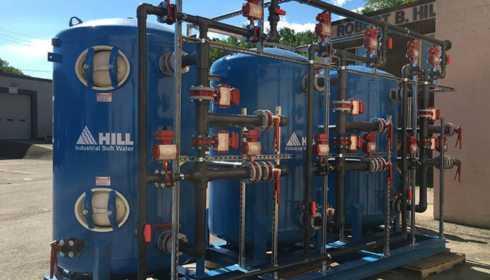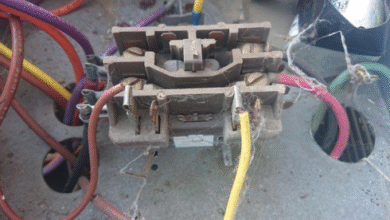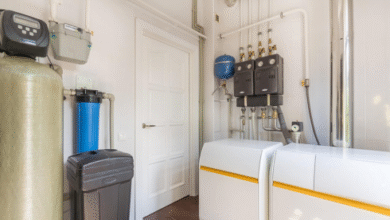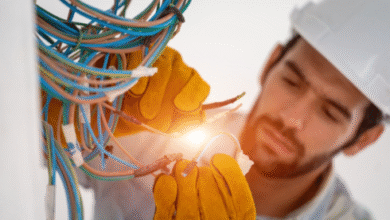Why Clean Water Isn’t Just a Luxury for Businesses—It’s a Necessity

When you walk into a restaurant, hotel, or even a hospital, you rarely stop to think about the water. You notice the décor, the lighting, maybe the background music—but not the water flowing through pipes and faucets. And yet, behind the scenes, water quality plays a bigger role in customer experience, employee safety, and overall business performance than most people realize. For many businesses in industries where water touches nearly everything, ignoring water quality isn’t just inconvenient—it’s expensive.
I’ve seen companies spend thousands on fixing equipment that could’ve lasted years longer with better water conditioning. Kitchens struggle with scale buildup on dishwashers, hotels with streaky glassware, laundries with stiff linens—it’s often the silent culprit: untreated water. Businesses that get ahead of this problem tend to save themselves a lot of hassle and cost down the road.
The Hidden Costs of Hard Water
Hard water isn’t just a minor annoyance. It’s the unseen villain that quietly chips away at efficiency and longevity. Scale buildup shortens the life of boilers, heaters, and even ice machines. Detergents don’t lather the way they should. Cleaning staff spend twice as long scrubbing surfaces that should’ve been easy to rinse.
For businesses, that adds up fast. Imagine a hotel chain with hundreds of showers. Every clogged fixture or extra hour of maintenance costs money, not to mention guest satisfaction scores that plummet when showers trickle instead of flow. That’s why many commercial facilities invest in a commercial water softener system—not as a luxury, but as a baseline operational safeguard. It’s less about “nice to have” and more about “if we don’t, this gets expensive quickly.”
Texas Businesses and the Water Challenge
Texas, with its sprawling industries and diverse climate, has its own unique water challenges. High mineral content in many areas makes scaling and corrosion almost inevitable without intervention. Add in the growing demand on municipal systems, and it’s no wonder that local businesses—from oilfield operations to hospitality—are increasingly turning to customized water treatment solutions Texas providers recommend.
I’ve spoken with small brewery owners who realized their signature craft beers tasted slightly “off” when mineral levels shifted. One even had to pause production until a treatment system was installed that stabilized consistency. For them, water wasn’t just an ingredient; it was the foundation of their brand identity.
The point is, water problems don’t stay hidden forever. They eventually show up in broken machines, dissatisfied customers, or fluctuating product quality. In a competitive state like Texas, where businesses can’t afford downtime, reliable treatment isn’t optional—it’s survival.
Innovation That Doesn’t Feel Like Overkill
Sometimes business owners hear the term “water treatment system” and imagine an intimidating industrial setup that feels over-engineered. But technology in this space has evolved in really smart ways.
Take the WaterTech Commercial Reionator for example. It’s designed not just to soften water but to remove a range of impurities while improving overall taste and feel. That means fewer water spots on restaurant glassware, longer-lasting appliances, and even better showers in hotels. What makes systems like these stand out is their ability to deliver multiple benefits at once without overwhelming maintenance staff.
I find it fascinating that something as “ordinary” as water can inspire such precise innovation. But then again, when you consider how much business performance rides on reliable water, it makes sense that companies are pushing boundaries here.
The Customer Experience Factor
Here’s a truth business leaders often overlook: customers notice water quality, even if they don’t put it into words. A restaurant guest might not say, “Oh, this water is too hard,” but they’ll notice cloudy ice cubes, streaky glasses, or rough-textured napkins. A hotel guest won’t know the technical details, but they’ll definitely feel the difference between a shower that leaves skin feeling soft versus one that leaves it dry and itchy.
The ripple effect is powerful. Negative reviews rarely mention “scale buildup” explicitly, but they do mention “dirty bathroom” or “scratchy sheets.” And in today’s world, where one poor review can spiral online, protecting water quality is a form of protecting your reputation.
Sustainability and Savings Go Hand in Hand
There’s another piece here: sustainability. With energy and water costs rising, efficiency has become more than a buzzword—it’s a financial lifeline. Treated water reduces energy use because heaters and boilers don’t have to work as hard through layers of scale. Businesses save on detergent because softer water requires less soap to clean effectively.
This isn’t just good PR—it’s money back in the bank. Over a year, those savings compound into thousands of dollars, which can be reinvested into growth, staff, or better services. Forward-thinking businesses have started to view water systems not as costs but as investments with measurable returns.
So, What’s the Takeaway?
If you’re running a business where water touches your product, your equipment, or your customer experience—and let’s face it, that’s almost every business—then water quality matters more than you probably give it credit for. The cost of ignoring it is too high, and the technology to solve it is more accessible than ever.
Investing in the right system isn’t about being fancy or cutting-edge—it’s about being practical. Whether you’re running a five-star resort, a mid-sized manufacturing plant, or a local coffee shop, cleaner water translates into smoother operations and happier customers. And that’s a win no matter how you measure it.
At the end of the day, water isn’t just water. It’s infrastructure, it’s reputation, it’s efficiency. Businesses that treat it as such aren’t just solving a problem—they’re positioning themselves for resilience in a world where every advantage counts.




